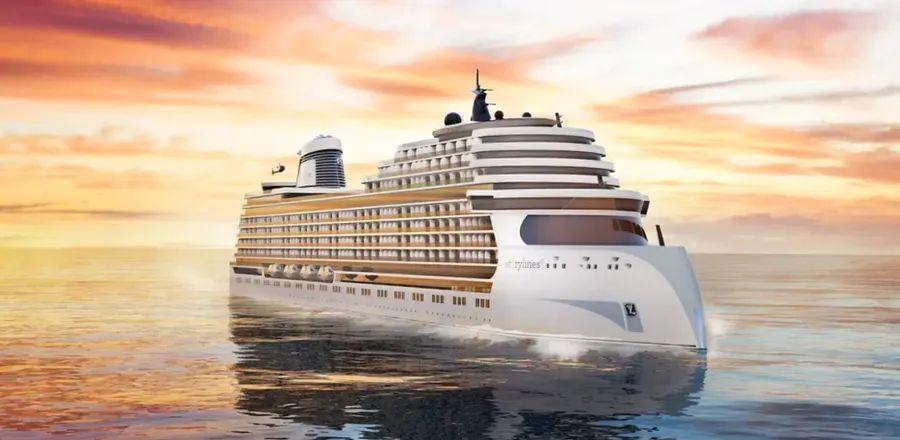Imagine Living Year-Round on This Residential Cruise Ship

After spending a few days enjoying the luxurious lifestyle aboard a cruise ship, exploring vibrant port cities, and indulging in the all-inclusive dining and amenities, you might find yourself pondering the possibility of making this ship your permanent home.
Sure, you can book a spot on a world cruise, but that doesn't equate to truly living on a cruise ship.
However, one residential cruising company is striving to turn a permanent life at sea into reality. By late 2024, the Croatia-based cruise line Storylines plans to launch its new residential vessel, the MV Narrative, where individuals can buy an apartment and sail without end.
This floating community will comprise 547 residences, including fully furnished studios with Murphy beds (spanning 237 square feet), one- to four-bedroom apartments, and two-story penthouses (ranging from 1,378 to 1,970 square feet). The purchase prices for these accommodations start just under $1 million and can reach up to $8 million. Like any traditional home, these residences can be rented or sold at the owner's discretion. A limited number of units are also available for 24-year leases (beginning at $600,000, or about $25,000 annually). Following the initial purchase or lease, each unit incurs an annual fee ranging from $65,000 to $200,000, which covers meals, amenities, and maintenance. Once onboard, residents would primarily pay for food, experiences, and souvenirs while ashore—most onboard expenses are covered by these fees (excluding premium alcohol, specific medical and veterinary services, childcare, and items from the onboard store).

Image courtesy of Storylines
While not a completely novel concept—The World has offered residences at sea since 2002, and Somnio, a luxury residential yacht liner, is set to launch in spring 2024—this option currently stands as the most affordable for those wishing to live at sea. (The World and Somnio’s smallest units are projected to start at around $3 million and $11 million, respectively.)
Founded in 2016, Storylines is led by Alister Punton and Shannon Lee, who both have backgrounds in real estate and construction. According to their website, the MV Narrative aims to provide a lifestyle choice rather than just an extended getaway. Thus, Storylines will conduct interviews with prospective residents to ensure they align with the community’s ethos.
The MV Narrative is set to feature 20 dining options spread over 18 decks, a library boasting 10,000 books, three swimming pools, a garden, a bowling alley, a fitness center with a running track, and a microbrewery. The ship will also include unique amenities not typically found on cruise ships, such as a post office, hospital, school (serving grades up to 12), bank, and office spaces, creating an atmosphere reminiscent of a city—just on the ocean. Additionally, there will be outdoor areas for pets to exercise, accommodating residents who wish to bring their furry companions along for the journey.
The ship is expected to embark on its 1,000-night inaugural voyage in late 2024. Over this nearly three-year journey, it will explore six continents and make stops at various ports for durations ranging from one to five days.
One 88-day sample itinerary illustrates the cruise gradually navigating most of Italy’s coastline over the span of a month, featuring three days in Rome, four days in Palermo (the capital of Sicily), and single days at San Leone, Sciacca, and Marsala, among other destinations. Following this, the ship would spend a few days in Slovenia, Croatia, Bosnia and Herzegovina, Montenegro, and Albania, before embarking on a 24-day exploration of Greece, and then making its way to Turkey. Throughout the journey, there would be “Residents Choice” days, allowing those onboard to vote for their preferred destinations via a special app designed for residents.
According to the company’s website, the leisurely travel schedule is part of its commitment to sustainable tourism, as staying in ports for several days and covering shorter distances reduces fossil fuel consumption. Additional sustainable practices include waste-to-energy technology, cultivating vegetables in a hydroponic garden, and a commitment to using only biodegradable or reusable products instead of single-use plastics.
Evaluation :
5/5



